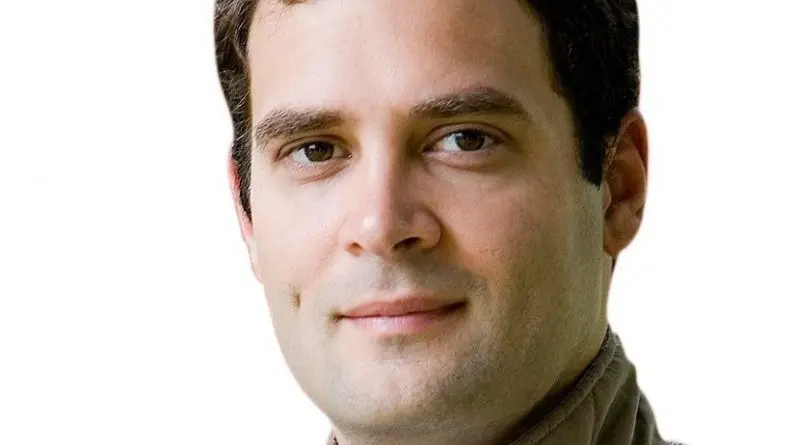Dynasty, Democracy, And Dissent – OpEd
Few families have wielded as much influence, and attracted as much scrutiny, in Indian politics as the Gandhis. For decades, they have symbolized the Congress party’s ethos, acting as both its pillar of strength and its Achilles’ heel. In the polarized political climate of today, dominated by the BJP under Prime Minister Narendra Modi, the Gandhi family finds itself at the center of a fierce debate about dynastic politics, the opposition’s role, and the erosion of democratic institutions. Allegations by BJP leader Dr. Subramanian Swamy against the Gandhis have rekindled these discussions, highlighting their challenges in maintaining relevance in an era shaped by Modi’s majoritarian agenda and hyper-centralized governance. This article delves into the legacy, struggles, and prospects of the Gandhis as they confront both internal weaknesses and external pressures.
Rahul Gandhi’s political journey encapsulates the paradoxes of dynastic leadership in modern India. As the heir to the Nehru-Gandhi dynasty, his entry into politics carried immense expectations. Yet, his leadership has been inconsistent, marred by strategic blunders, including the infamous tearing of an ordinance in 2013, which exposed deep divisions within Congress. Despite initiatives like the Bharat Jodo Yatra aimed at reconnecting with grassroots voters, doubts persist about his political maturity. Swamy’s claims that Rahul is disillusioned and wishes to exit politics underscore the broader malaise within Congress, a party struggling to define itself against Modi’s authoritative populism.
Modi has skillfully exploited Rahul’s weaknesses, branding him as ineffectual through relentless public campaigns. This strategy has succeeded in deflecting attention from the BJP’s governance failures, including rising unemployment, worsening communal tensions, and an erosion of democratic norms. Rahul’s struggles are emblematic of Congress’s broader inability to mount a coherent opposition, a shortcoming that has allowed the BJP to tighten its grip on power.
Sonia Gandhi’s tenure as Congress president was a testament to her resilience. Despite being an Italian-born outsider, she defied skepticism with her political acumen, steering the UPA government through landmark achievements in economic and social reforms. However, her era was also tainted by corruption scandals, such as the 2G spectrum and Coalgate cases, which tarnished Congress’s image. Swamy’s allegations about her educational qualifications and financial improprieties are part of a broader BJP strategy to delegitimize the Gandhis, yet they fail to account for her role in holding Congress together during periods of crisis, particularly after the BJP’s 2014 electoral landslide.
Critics argue that Sonia’s centralized leadership style stifled regional leaders and innovation within the party, a claim that pales in comparison to Modi’s governance style. Under Modi, dissent is routinely suppressed, even within the BJP, as democratic institutions face unprecedented strain. While the BJP accuses Congress of dynastic entitlement, it has cultivated its own authoritarian tendencies, creating a different but equally concerning concentration of power.
The Gandhis’ leadership is undoubtedly flawed, but it represents an inclusive and pluralistic vision of India that stands in stark contrast to the BJP’s majoritarian agenda. Modi’s narrative of a self-made leader battling entrenched elites has resonated with voters, yet his governance has centralized power to an extent that endangers India’s federal and democratic structures. The BJP’s critique of dynastic politics, though valid, often serves as a smokescreen to divert attention from its own governance failures.
As Congress grapples with leadership challenges, it risks becoming increasingly irrelevant in the face of Modi’s dominance. Rahul’s uncertainty and Sonia’s waning influence have created a vacuum that the party struggles to fill. Yet, the Gandhis remain integral to the opposition’s ability to challenge the BJP’s growing authoritarianism. Their failure to adapt to modern political realities has weakened their impact, but their role in preserving India’s democratic ethos cannot be dismissed.
The Gandhis’ legacy is a tapestry of triumphs and missteps, embodying both the promise and pitfalls of dynastic politics. Swamy’s accusations, while sensational, are part of a larger narrative shaped by a polarized political environment. The question, however, extends beyond the Gandhis: What does the future of Indian democracy look like under Modi’s centralizing influence?
India urgently needs a robust opposition to counterbalance the BJP’s power. The Gandhis, despite their flaws, continue to symbolize an India rooted in pluralism and democracy. Whether they can evolve to meet the demands of this pivotal moment remains uncertain, but their relevance in shaping the nation’s political trajectory is undeniable.

